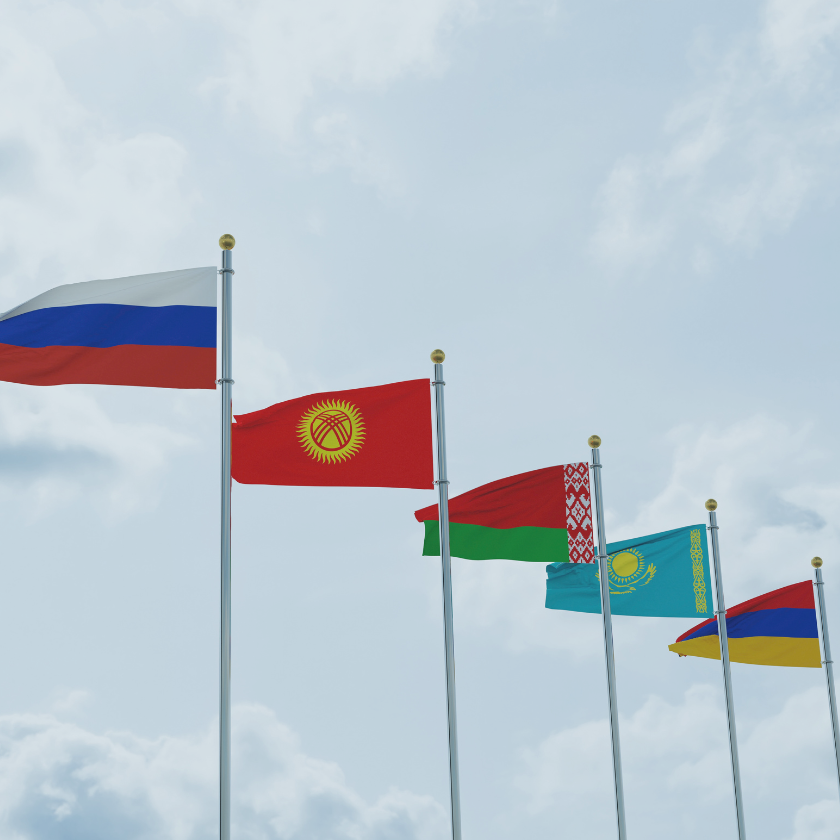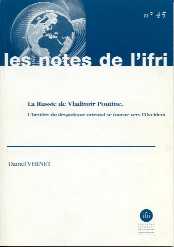Russia-Eurasia
Eurasia is undergoing profound changes. While the Soviet past has left a lasting imprint, Russia and the countries of Eastern Europe, Central Asia and the South Caucasus have their own trajectory.
Related Subjects



What Is at Stake in the Partnership Between Russia and the European Union

Le partenariat entre l'Union européenne et la Russie à l'épreuve de l'élargissement


Double Detente, the Relations between France and the USSR from 1958 to 1964

The Russia of Vladimir Putin: The Heir of Eastern Despotism Turns Towards the West
Despite the westernization of Russia's foreign policy, the Kremlin's domestic policy still remains dominated by 'Eastern despotism'.

Support independent French research
Ifri, a foundation recognized as being of public utility, relies largely on private donors – companies and individuals – to guarantee its sustainability and intellectual independence. Through their funding, donors help maintain the Institute's position among the world's leading think tanks. By benefiting from an internationally recognized network and expertise, donors refine their understanding of geopolitical risk and its consequences on global politics and the economy. In 2025, Ifri supports more than 80 French and foreign companies and organizations.








